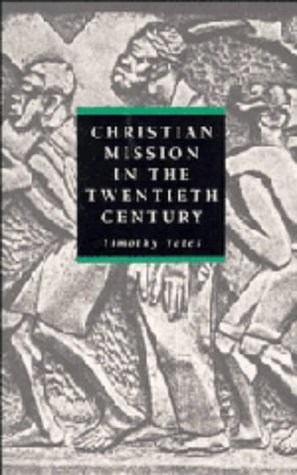Not the Way It’s Supposed to Be, A Breviary of Sin
Written by Cornelius Plantinga, Jr Reviewed By Alan RussellRecently someone who informed us tht he had just started and Alpha Course initiated a discussion on the internet. He challenged Christians to respond with an explanation of sin which was free from theological jargon and reserved the right to fail unsatisfactory answers. I would have been tempted to submit Cornelius Plantinga’s breviary of sin. The book is a fresh attempt to demonstrate the reality of the traditional Christian understanding of sin by exposing its nature and dynamics within contemporary culture and society. Thus Plantinga seems to present the ‘main themes that arise from within the Christian understanding of sin … through some of the currents of modernity in order to present them afresh in a common idiom, illustrated from a variety of literary, journalistic and general sources’. (p. xiii)
In my judgement the project is very successful although the contemporary illustrations take for granted a largely American readership. Who are the writing to when they write to the IRS? More seriously, a narrow cultural focus makes the book less useful for other contexts where many of Plantinga’s examples would either seem remote or else confirm prejudices about the shortcomings of US society! We would need different versions rather than mere translations of the book for various parts of the world but this is inevitable. Different illustrations might be required to illuminate the reality of sin in, say, Japanese, Pakistani or Nigerian contexts of society and culture. In spite of this the book develops an explanation and analysis of sin that no member of the Christian community can ignore.
The introduction sets out Plantinga’s aim to expose as the root of the whole range of human miseries. Thus sin distorts our character, corrupts powerful human capacities, perverts special human excellencies and consequently both causes and results from misery. In addition, sin operates in some way or other as a casual factor in the evil we experience through the accidents and large scale human and natural catastrophes which appear to be beyond our moral control. All of this presupposes the idea of sin which Plantinga proceeds to develop in the first chapter, introducing the sub-title of the book. There is a Christian understanding of the world in terms of the way things are supposed to be as designed and intended by God and Plantinga develops this in terms of the concept of Shalom as found in the writings of the Hebrew prophets. Thus the way things ought to be is ‘the webbing together of God, humans and all creation in justice, fulfilment and delight’ (p. 10). Conversely sin is ‘not the way it’s supposed to be’ but is to be explained as corruption, perversion and disintegration.
Although Plantinga recognises the traditional definition of sin as a religious as well as moral concept: ‘Sin is a culpable and personal affront to a personal God’ (p. 13) he is also making important assumptions about the relationship between God’s will and the moral order. Ideas of shalom in terms of universal flourishing, wholeness and delight imply that we can appreciate this goodness in its own right, not just because it is an order of things commanded by God for reasons it is impossible for hum beings to appreciate. ‘God is, after all, not arbitrarily offended’ (p. 14), is as much a remark about our ability to appreciate his consistency as we ‘agree on many of the broad outlines and main ingredients of a transformed world’ (p. 11) as a purely theological statement. In contrast to some theological views, which hold that a genuine understanding of sin must be confined to the Christian community, Plantinga considers that many of his arguments are entirely comprehensible to adherents of other religions and secularists. Thus his book also assumes the apologetic function of extending awareness of sin beyond the confines of the Christian community.
The book’s analysis and illustration of sin yields useful insights into the meaning of traditions doctrines such as total depravity which can naively be considered to include the malfunction of human rational process as such. Instead Plantinga shows how it is the purposes and motives behind our rationality which are polluted and corrupted: ‘Sin attaches to intention, memory, thought, speech, intelligent action … and transforms them into weapons’ (p. 77). The same rigorous scientific method can be used to ‘conquer a disease … or manufacture one and sell it to terrorists’ (p. 77) just as sound procedures of argument can be used to establish true beliefs and important moral principles but also to attack and undermine their influence on people’s lives. Indeed, as Plantinga shows, sin is parasitic on the good and wholesome and: ‘The smartest blows against shalom are struck by people an movements of impressive resourcefulness strength and intelligence’. (p. 89). Equally useful is the recognition that ‘moral evil is social and structural as well as personal: it comprises a vast historical and cultural matrix that includes traditions, old patterns of relationship and behaviour, atmospheres of expectation, social habits’ (p. 25) and the discussion of culpability in situations where states of mind and structures are outside our control or awareness of evil.
Other themes explored by the book include evasion and self deception, the relationship between sin and folly and addiction which is described as ‘a dramatic portrait of some of the main dynamics of sin’ (p. 147). Typically the discussion is aptly illustrated, important points are well made and it would be difficult to disagree with the conclusions. The analysis of envy as motive for attack has a consistent and uncomfortable ring of truth as does the final chapter as it describes various ways in human being attempt to shrug off responsibility for evil.
There is an overdone cleverness and slick point scoring in some contemporary Christian American writing which I can find irritating to read (perhaps because of my own cultural bias). However, I enjoyed this book which, apart from everything else, is a good read. Certainly Plantinga had little trouble in finding targets that were easy to hit but his examples are always well chosen and appropriate. Sentences like: ‘In sin as on ice, people coming out of a skid tend to oversteer (p. 86) are worth filing away for future use. Naturally, many of his insights originate from previous thinkers and names like C.S. Lewis appear frequently in the footnotes which also confirm the impression that Plantinga is thoroughly acquainted with the academic theological and philosophical background to his material.
Perhaps the need for this book and its future revisions and successors is best expressed by Plantinga’s concluding comment: ‘… without full disclosure on sin, the gospel of grace becomes impertinent, unnecessary, and finally uninteresting’.
Alan Russell
Ballywalter







